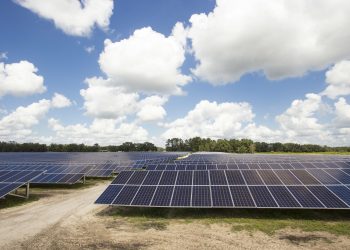The development came as the United Nations’ top humanitarian official, Martin Griffiths, announced the release of $45 million from an emergency fund to support Afghanistan’s crumbling health-care system.
“Allowing Afghanistan’s healthcare delivery system to fall apart would be disastrous,” said Mr. Griffiths. “People across the country would be denied access to primary healthcare such as emergency caesarean sections and trauma care.”
Kabul crisis
Echoing that message from the Afghan capital, Kabul, WHO Director-General Tedros Adhanom Ghebreyesus said that international funding cuts had forced health providers to decide “who to save and who to let die”.
After meeting senior Taliban figures, medical professionals and patients, Tedros explained that a lack of financial support for the country’s largest health project, Sehetmandi, had left thousands of facilities unable to buy medical supplies and pay salaries.
Fewer than one in five of the country’s Sehetmandi facilities remained open, the WHO chief explained, although he said that access to all communities was “no longer impeded”.
Medicine shortages
“This breakdown in health services is having a rippling effect on the availability of basic and essential health care, as well as on emergency response, polio eradication, and COVID-19 vaccination efforts,” Tedros said, amid reports that cold chain medical storage has been compromised.
COVID-19 risk
The WHO chief also noted that nine of 37 COVID-19 hospitals have already closed, and that “all aspects” of the country’s COVID-19 response have dropped off, from surveillance to testing and vaccination.
Amid concerns over women’s rights in the country following the appointment of an exclusively male Taliban interim cabinet earlier this month, Tedros insisted that women needed access to education, health care, and to the health workforce.
“With fewer health facilities operational and less female health workers reporting to work, female patients are hesitant to seek care,” he said. “We are committed to working with partners to invest in the health education of girls and women, as well as continue training female health workers.”
Among its operations in Afghanistan, WHO supports an extensive trauma programme that includes training, the provision of supplies and equipment for 130 hospitals and 67 blood banks.
COVID-19 vaccine challenge
Data from WHO indicated that before the Taliban takeover on 15 August, 2.2 million people had been vaccinated against the new coronavirus in Afghanistan.
“In recent weeks, vaccination rates have decreased rapidly while 1.8 million COVID-19 vaccine doses in country remain unused,” Tedros said. “Swift action is needed to use these doses in the coming weeks and work towards reaching the goal of vaccinating at least 20 per cent of the population by the end of the year.”
The WHO top official also urged renewed action to eradicate polio in Afghanistan – one of two countries where the disease remains endemic.
Measles is also spreading, the WHO Director-General warned, but he said that access to all communities was now possible. “With only one case of wild poliovirus reported so far this year, compared to 56 in 2020, there has never been a better time to eradicate polio,” Tedros said. “However, the polio programme will struggle to respond if the basic immunization infrastructure begins to collapse around it.”
This meant that WHO and partners can begin a country-wide house-to-house polio vaccination campaign, combining measles and COVID vaccination too, he explained.
95 per cent of Afghan families going hungry
Rising job losses, lack of cash and soaring prices are creating a new class of hungry in Afghanistan, the United Nations World Food Programme (WFP) warned on Wednesday, with urban residents suffering from food insecurity at similar rates to rural communities, for the first time.
Only five percent of households in Afghanistan have enough to eat every day, according to recent surveys conducted by WFP, while half reported they had run out of food altogether at least once, in the past two weeks.
“The economic freefall in Afghanistan has been abrupt and unrelenting, adding to an already difficult situation, as the country grapples with a second severe drought in three years. We are doing everything we can to support Afghan communities at this critical time,” said Mary-Ellen McGroarty, WFP’s Country Director and Representative.
The middle classes are also struggling, WFP reports, with only 10 percent of households headed by someone with a secondary or university education, able to buy sufficient food for their families every day.
Though the situation is worse for those less well-educated, the unprecedented prevalence of hunger among families that had previously been spared, signals the depth of the crisis facing Afghans.
On average, breadwinners are finding work just one day a week, barely enough to afford food that is rapidly increasing in price. Cooking oil, for example, has almost doubled in price since 2020, and wheat is up by 28 percent.
“WFP is stepping up to the urgent challenge which is now two-fold. First, we continue to assist the people who need it most to avoid acute hunger and malnutrition from devastating the country, and second, we are strengthening local capacity to produce food and get it to market, while also providing short-term work opportunities that help stabilise the economy and give families access to cash,” Ms. McGroarty added.



